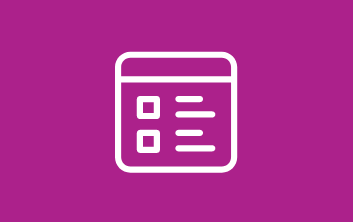Blog article
How the Primary Grades Can Save Us: Growing American Reading Comprehension
2018

Description
When recent NAEP results came out, the bleak headline was that American students are not getting better at reading comprehension. When the NAEP folks convened a panel of reading experts in early April, the primary grades got called out as one potential culprit. So what needs re-evaluating in K-3 literacy? One reasonable place to look is at oral reading fluency and the foundational skills that feed word decoding.
See MoreRelated Topics



Who Moved the Mathematics?: The Need for IMPACT
This American Mathematical Association of Two-Year Colleges (AMATYC) article examines the three key areas of mathematics teaching and learning: ways of doing, ways of thinking and habits of thinking.


Concurrent validity of the independent reading level assessment framework and a state assessment
This study investigates the use of screening assessments within the increasingly popular Response to Intervention (RTI) framework, specifically seeking to collect concurrent validity evidence on one potential new screening tool, the Independent Reading Level Assessment (IRLA) framework.
By: Beth Tarasawa, Nicole Ralston, Jacqueline Waggoner, Amy Jackson
Topics: Empowering educators, Measurement & scaling, Reading & language arts


A longitudinal study of reading growth for students with visual impairments
This study compares reading growth for students with visual impairments with a nationally normed group of students from the general population using data from the NWEA MAP Growth assessment.
By: Beth Boroson, Elizabeth Barker, Xueming Li
Topics: Equity, Accessibility, Reading & language arts


A longitudinal study of reading growth for students with visual impairments
Using data from Northwest Evaluation Association’s Measures of Academic Progress assessment, reading achievement was analyzed from 224 students with visual impairments in grades 3–10, in four states over an eight-year time period.
By: Beth Boroson, Elizabeth Barker, Xueming (Sylvia) Li
Topics: Accessibility, Growth, Reading & language arts


A Tech Refresh for Reading Fluency
In this Ed Tech Digest article, Cindy Jiban discusses how oral reading fluency assessment is now commonplace in the primary grades. This represents a significant step for data-based problem solving in education. However, given some of the side effects that have emerged, it is clear that fluency assessment is due for significant structural improvement.
Topics: Measurement & scaling, Academic content, Reading & language arts


This kindergarten sneak preview helps families hit the ground running
For three weeks in the summer, children who are entering kindergarten in Portland, Oregon, get ready and get excited to start school. While it’s no substitute for pre-K, getting a preview helps ease the transition for kids, and offers parents a sense of connection. Special correspondent Lisa Stark of Education Week reports.
PBS News Hour
Mentions: Beth Tarasawa
Topics: Early learning, Equity, High-growth schools & practices


